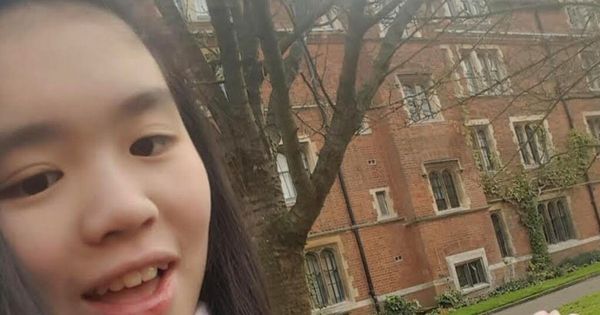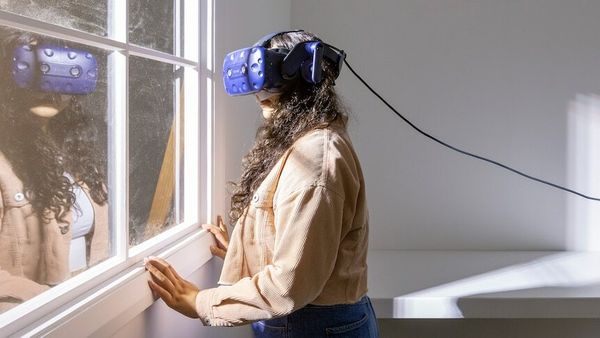A Co Down man has said surviving two suicide attempts allowed him to reach out and help others avoid the darkest moments.
Paddy Cordell twice tried to take his own life at the age of 18, but has spent years advocating for and teaching good mental health practices to those in the Kilkeel community and further afield.
Now 35, Paddy said at one stage in his life, "it was just fighting every day to keep the suicide thoughts out of my head".
Read more: Belfast teen turns life around after hitting rock bottom with prescription drugs and alcohol
Speaking to Belfast Live during Mental Health Awareness Week, Paddy opened up on how his early struggles in life have led him to find fulfilment in helping others.
"From the age of 14 really, I was having maybe between six to 10 panic attacks every single day with night time ones getting progressively worse.
"That's the time when most people are alone with thoughts, and if you're not comfortable with that it makes it a lot harder.
"I figured out from the age of 14 that drinking alcohol helped me to sleep."
Between ages 16-18, Paddy said he had left school and was making enough money to be able to afford to drink every day.
His state of mind worsened and he said matters came to a head in 2005.
"The area where we're standing now, it's such a beautiful place, we're here at the harbour and we have the sea and the mountains just up there," he said.
"But at that time, it was so suffocating, it felt like this was the end of the world for me and that the world was closing in around me.
"Then I had a number of my friends take their own lives through suicide, so the world just seemed to close in really fast on me.
"I felt like there was no other way out so, I was sitting in the pub one night and I went myself then and tried to take my own life."
Fortunately, Paddy was found by police and taken to hospital, but feeling that he wasn't getting the support he needed, he again tried to take his own life two months later.
Again, he was found and this time, a phone call offering support led to him getting help through therapy.
He also said quitting alcohol allowed him to get a clearer picture of his mental state.
"It was a struggle, I'm not going to say it was easy, it was a struggle even just for the first three months to stay alive," he added.
"It was just fighting every day to keep the suicide thoughts out of my head all the time.
"But as time progressed over the next two years, I started to progress and socialising a wee bit more.
"So after two years of therapy then, I took a year out to try and deal with the world as it is and not how I thought it should be.
"That's the whole misconception, we're trying to create this world around us that's perfect and it's just not there - we have to learn to deal with the hard times that come and accept them."
In a better state with therapy under his belt, Paddy undertook Applied Suicide Intervention Skills Training (ASIST) and studied positive psychology.
He now uses that training in speaking to young people in schools and at The Well community hub in Kilkeel.
He said that teaching children early in their lives that they are in charge of how they're feeling and how to deal with their emotions was crucial in creating a better mental health landscape.
"Whenever you're in school, that seems to be the toughest time for children," he said.
"Especially when they sit exams and there's so much pressure put on them and I think that's where a lot of problems develop from.
"If we can get in and we can control and choose positive thoughts and thinking and instill this from a young age then it becomes habit."
Paddy said he hoped his story would encourage more people to open up about their emotional and mental wellbeing and to take steps towards a healthier outlook.
"I'm proud of the person that I've become out of that, I've definitely become a better person from that experience," he said.
"My message would be absolutely reach out to anyone, your strength is reaching out and talking to people.
"It's not in hiding it, we're not hard or strong by holding things in.
"Our strength comes in talking to people, in getting rid of those emotions, or accepting them and feeling them and then we can grow from them.
"It's ok to feel down and low about something as long as you talk to someone about what you're feeling."
If you or someone you know is in distress or despair call the 24/7 freephone crisis helpline Lifeline on 0808 808 8000.
Video by Belfast Live videographer Harry Bateman.
Read more: 'Open your eyes': Belfast mum's message to Stormont after losing son to suicide
Read more: Co Down men who have lost loved ones to suicide on fundraising mission
To get the latest breaking news straight to your inbox, sign up to our free newsletter.










